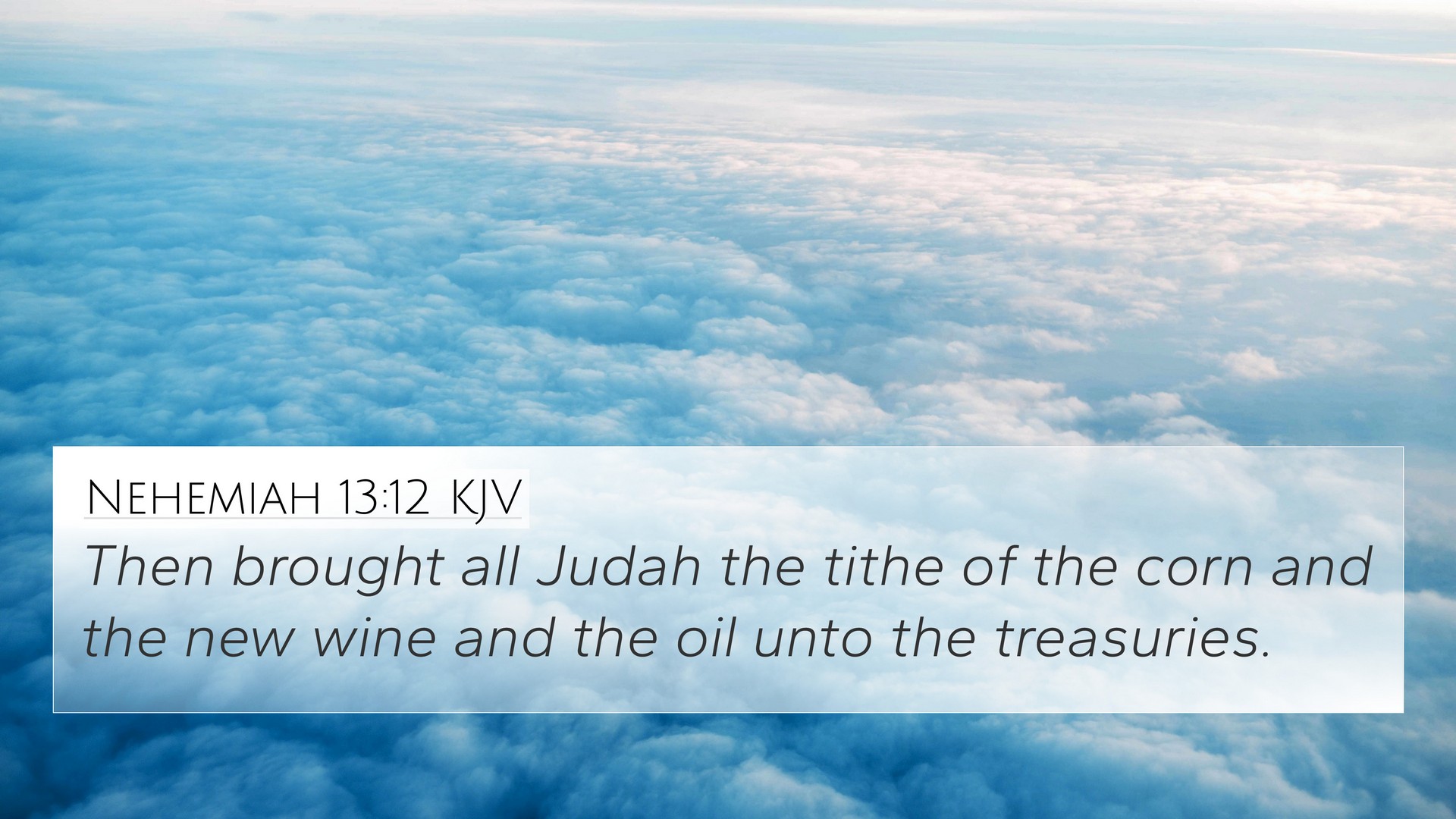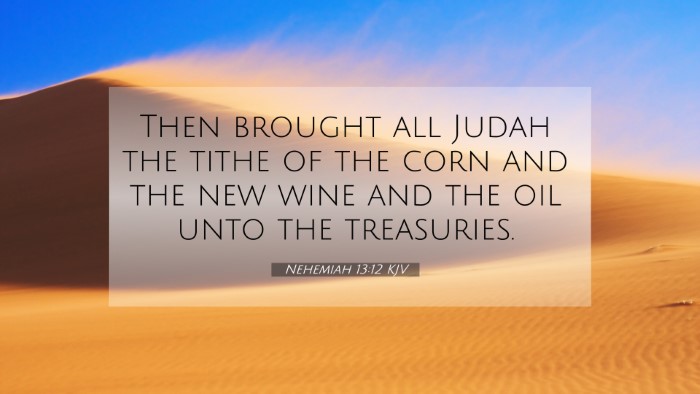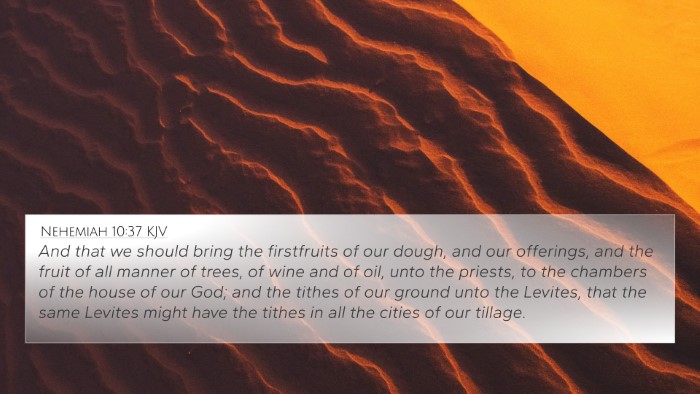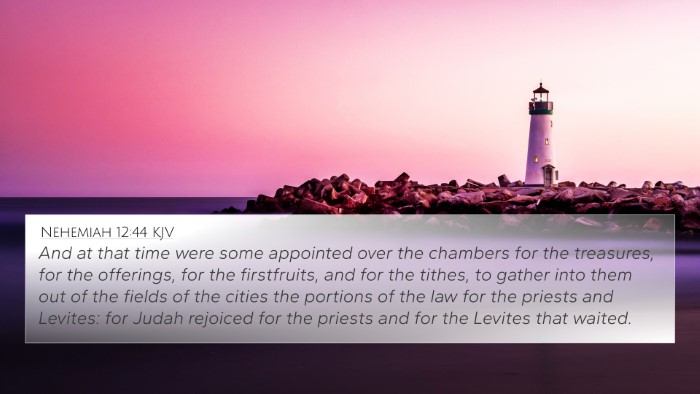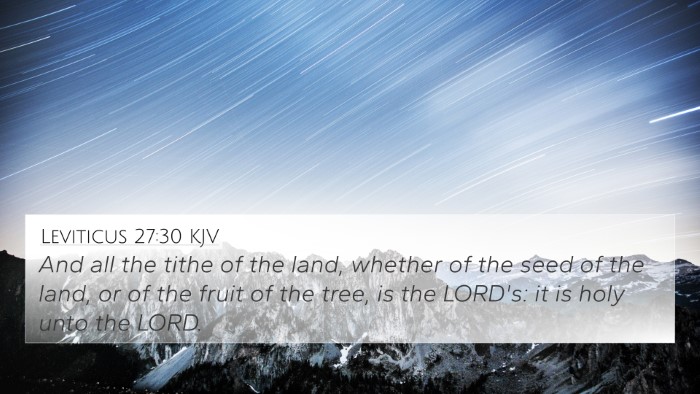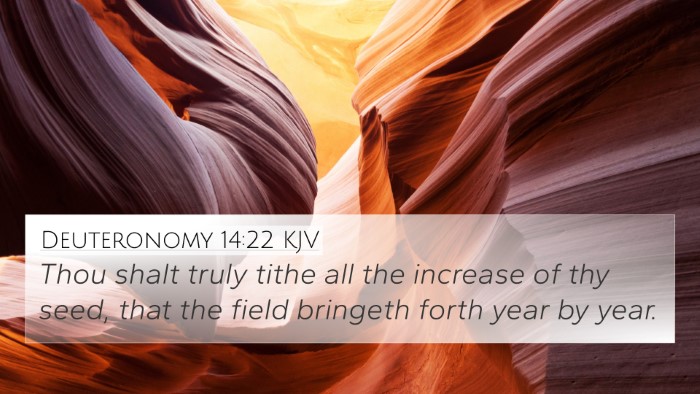Understanding Nehemiah 13:12
Bible Verse: Nehemiah 13:12 - "Then brought all Judah the tithe of the corn and the new wine and the oil unto the treasures."
Introduction
This verse encapsulates a significant moment in the post-exilic period of Israel's history. Nehemiah observes the people of Judah fulfilling their duty of giving tithes, which is both a demonstration of their obedience to God's commands and a practical support for the temple and its services.
Verse Interpretation
Nehemiah 13:12 shows the commitment of the people to restore their covenant relationship with God after returning from exile. The act of bringing tithes represents a renewal of faith, highlighting themes of stewardship and communal responsibility.
Insights from Public Domain Commentaries
-
Matthew Henry's Commentary:
Henry notes the importance of the tithe as a reflection of gratitude toward God for His blessings. He emphasizes that the restoration of proper worship and support for the Levites is crucial for spiritual leadership within the community.
-
Albert Barnes' Notes:
Barnes highlights the organized effort of the people in bringing tithes, indicating a societal shift towards obedience. This collective action not only reinstates temple worship but also strengthens community ties.
-
Adam Clarke's Commentary:
Clarke elaborates on the types of tithes mentioned—corn, new wine, and oil—as essential for the livelihood of the priests and Levites. He connects this practice to earlier mandates found in the Torah, emphasizing continuity in worship practices.
Thematic Connections
Nehemiah 13:12 reflects broader biblical themes of tithing, community responsibility, and worship. Here are some related concepts:
-
Obedience to 'The Law':
The practice of tithing is rooted in the Mosaic Law, emphasizing the people's restoration of adherence to God's commandments.
-
Community Engagement:
This verse demonstrates how the community came together to support their spiritual leaders, reflecting themes of unity and shared responsibility.
-
Stewardship:
Bringing tithes exemplifies the principle of stewardship—recognizing that all resources are ultimately from God and should be used for His service.
Cross-References
Nehemiah 13:12 connects to various Bible verses that enhance understanding of its themes. Below are significant cross-references:
- Malachi 3:10: Discusses bringing the full tithe into the storehouse.
- Deuteronomy 14:22-29: Outlines tithing and its purposes.
- Numbers 18:21: Details the Levitical priesthood's right to tithes.
- 2 Chronicles 31:5: Chronicles the people’s response to God's commands regarding tithing.
- Leviticus 27:30: Establishes tithing as the ten percent of one’s harvest dedicated to God.
- Luke 11:42: Jesus speaks about the necessity of tithing while emphasizing justice and love.
- 1 Corinthians 9:13-14: Explains how those who preach the Gospel should live by the Gospel, akin to the Levitical practice.
Practical Application
The act of bringing tithes, as noted in Nehemiah 13:12, serves as a powerful reminder for modern believers:
- **Gratitude:** Reflecting on how to express thankfulness through support of the church.
- **Community:** Engaging in communal acts that support the church and its functions.
- **Faithfulness:** Cultivating a habit of regular giving as an act of worship and obedience.
Conclusion
Nehemiah 13:12 stands as an important text for understanding the practice of tithing in the life of God’s people. It underscores the significance of community, obedience, and the continuity of God's commands throughout Scripture, forming a bridge between the Old and New Testaments. By exploring its meanings, readers can appreciate its relevance today.
